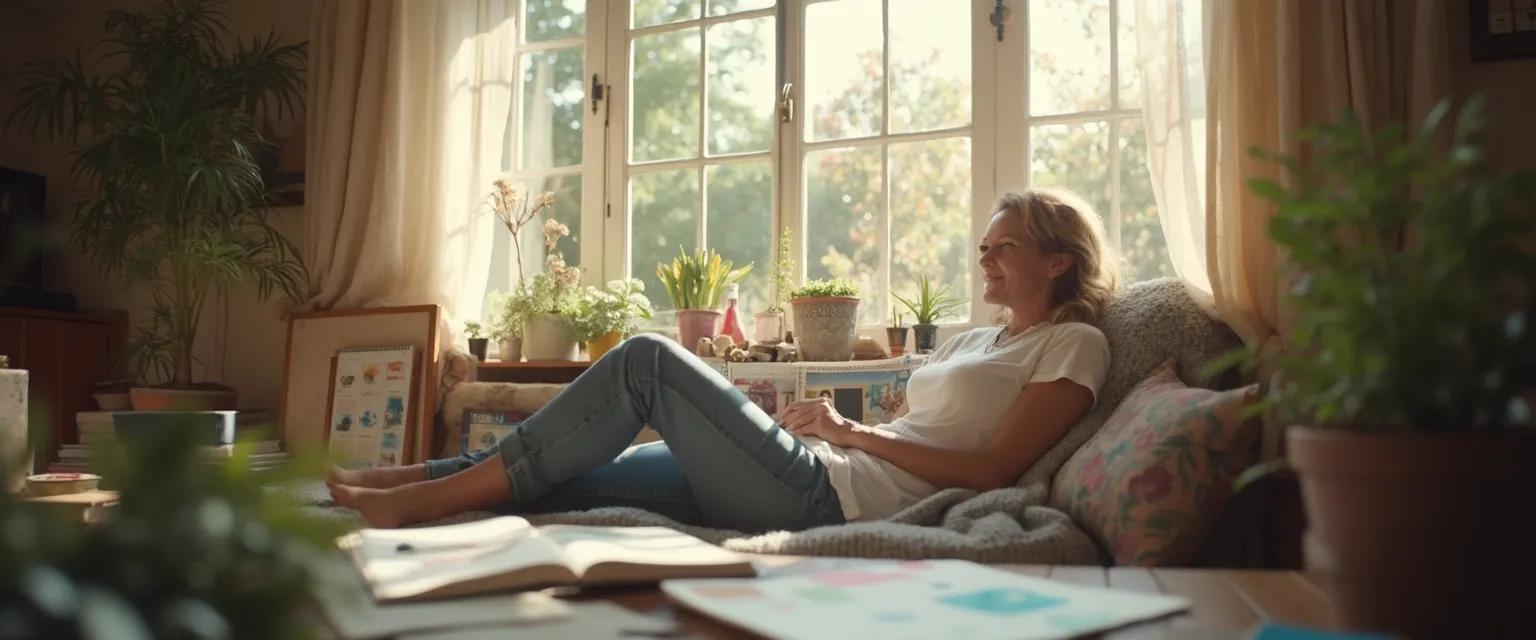Why Procrastination in Leisure Activities Impacts Your Mental Well-being
Ever notice how we easily put off the very activities that bring us joy? Procrastination in leisure activities might sound like an oxymoron—after all, why would anyone delay doing something fun? Yet this phenomenon affects countless people who consistently postpone hobbies, personal projects, and relaxation in favor of work, chores, or mindless scrolling. Unlike work-related procrastination, which receives abundant attention, procrastination in leisure activities often flies under the radar despite its profound impact on our mental well-being. Research from the Journal of Positive Psychology shows that engaging in enjoyable activities for just 20 minutes daily significantly boosts mood and reduces stress. Despite knowing these benefits, many of us continue to place our joy-bringing activities at the bottom of our priority lists, creating a cycle of postponement that affects our mental health.
The science is clear: regular leisure activities strengthen neural pathways associated with pleasure and satisfaction while reducing stress hormone production. When we consistently engage in activities that bring genuine enjoyment, we create powerful buffers against anxiety and burnout. Yet paradoxically, the more stressed we become, the more likely we are to delay these beneficial activities—precisely when we need them most.
How Procrastination in Leisure Activities Affects Your Mental Health
The impact of procrastination in leisure activities extends far beyond simply missing out on fun. When we continuously postpone enjoyment, we create a stress-reinforcing cycle that gradually diminishes our overall well-being. Our brains begin to normalize a state of constant productivity or passive consumption, making it increasingly difficult to engage in active, fulfilling leisure.
Research published in the Annals of Behavioral Medicine demonstrates that regular participation in leisure activities lowers cortisol levels and improves heart rate variability—both key indicators of reduced stress. Additionally, meaningful leisure engagement increases production of mood-enhancing neurotransmitters like serotonin and dopamine, creating natural antidepressant effects.
So why do we procrastinate on activities we genuinely enjoy? Several psychological mechanisms are at play. For many, leisure procrastination stems from a phenomenon psychologists call "time anxiety"—the persistent feeling that enjoying yourself means wasting valuable time. Others experience "leisure guilt," the belief that you haven't earned the right to relax until all productive tasks are complete (which they never are). Some face "decision fatigue" after a day of choices, making it easier to default to passive activities like scrolling rather than engaging in more fulfilling hobbies.
Perhaps most insidiously, many people experience "pleasure resistance"—a psychological barrier that makes transitioning from productivity mode to enjoyment mode surprisingly difficult. This resistance grows stronger the longer you go without meaningful leisure, creating a self-perpetuating cycle of burnout.
Practical Steps to Overcome Procrastination in Leisure Activities
Breaking free from leisure procrastination requires intentional strategies that elevate enjoyable activities to the same importance as work obligations. Here's how to start reclaiming your right to enjoyment:
- Schedule "joy appointments" with the same commitment as work meetings. Block time on your calendar specifically for leisure and treat these appointments as non-negotiable.
- Start with mini-leisure sessions of just 15 minutes to overcome initial resistance. These small commitments make it easier to begin and often naturally extend once you're engaged.
- Reframe leisure as essential maintenance rather than optional luxury. Just as your phone needs recharging, your mind requires regular periods of enjoyable engagement to function optimally.
- Connect leisure activities to existing routines through habit stacking. For example, "After dinner, I'll spend 20 minutes on my watercolor painting" creates a natural transition into enjoyment.
The key to overcoming procrastination in leisure activities lies in recognizing that enjoyment isn't frivolous—it's fundamental to your mental health and cognitive functioning. By reframing leisure as an essential investment rather than an indulgence, you create permission to prioritize activities that replenish your mental resources.
Transform Your Well-being by Prioritizing Procrastination-Free Leisure
The compound effect of consistent leisure engagement creates a positive spiral for long-term happiness and resilience. Each time you choose to prioritize enjoyable activities instead of postponing them, you strengthen neural pathways that make future engagement easier while building psychological resources that help you navigate life's challenges.
Try implementing a simple daily check-in: "What activity would bring me genuine joy today, and what's stopping me from doing it?" This brief reflection helps identify and overcome the specific barriers behind your procrastination in leisure activities. Start with just one non-negotiable enjoyable activity this week—something small enough to feel achievable but meaningful enough to create genuine pleasure.
Remember that overcoming procrastination in leisure activities isn't about adding more obligations to your life—it's about reclaiming your fundamental right to enjoyment and all the mental health benefits it brings. By making space for activities that truly nourish you, you're not just having fun—you're building a more resilient, balanced, and fulfilling life.




